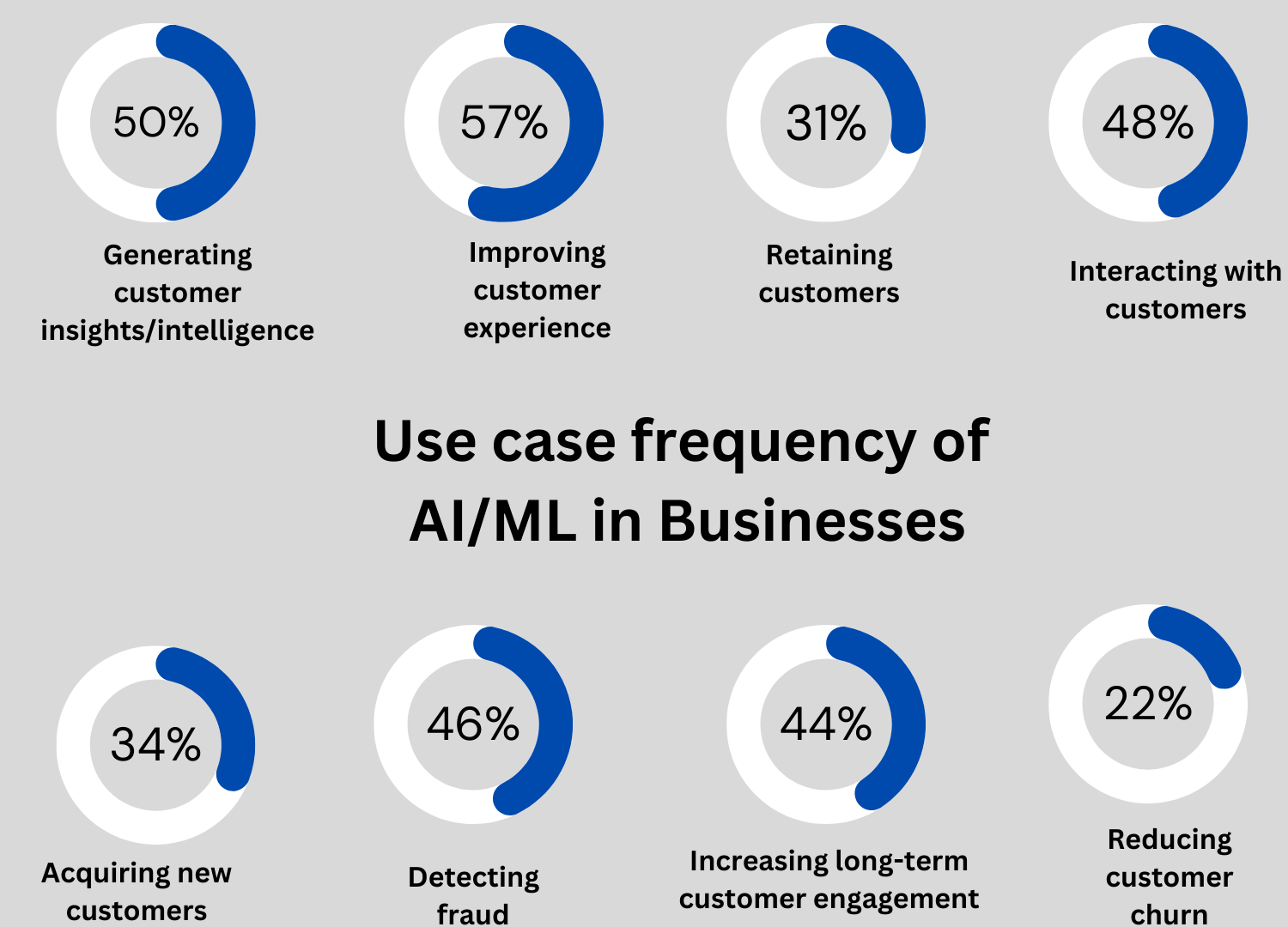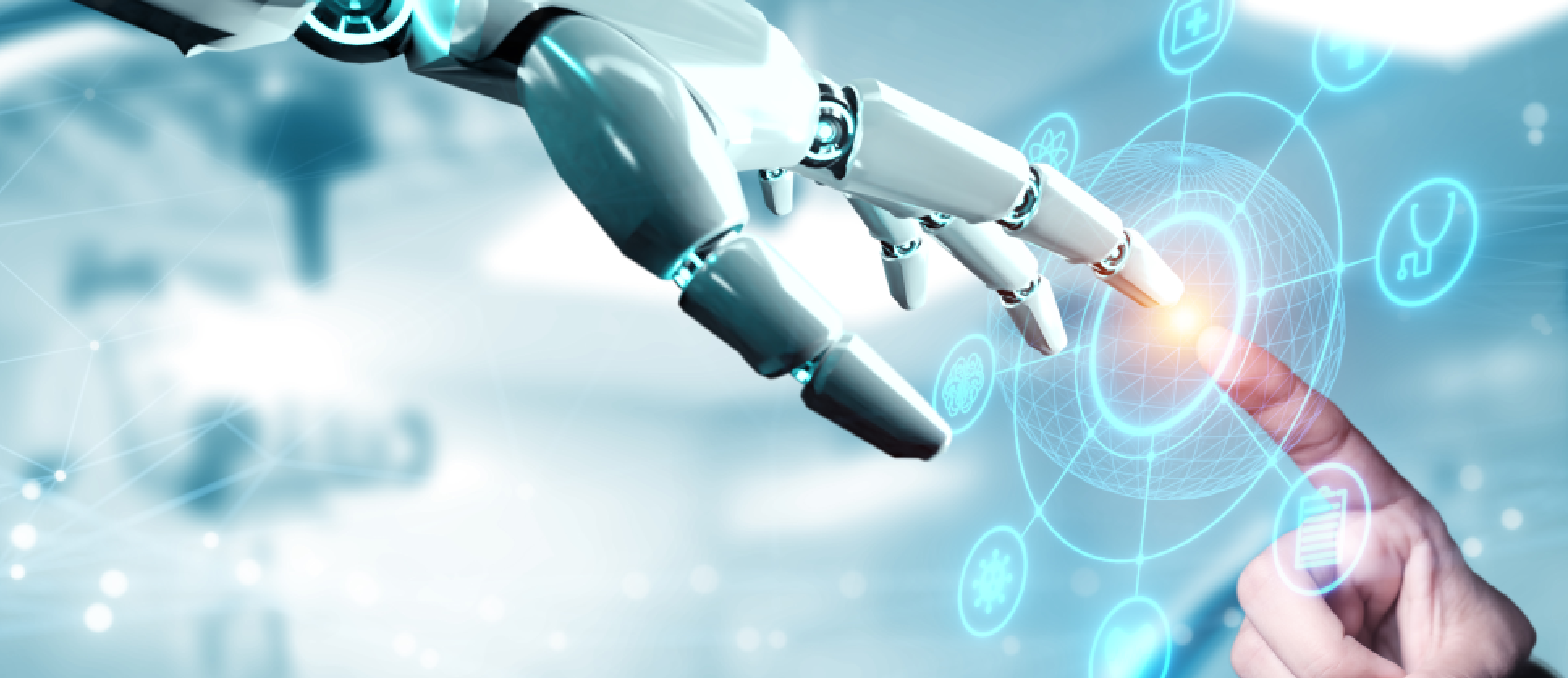Table of Contents
Artificial intelligence is revolutionizing businesses and people. The market size is expected to show an annual growth rate (CAGR 2024-2030) of 15.83%, resulting in a market volume of US$738.80bn by 2030. However, developing and deploying AI solutions requires special talent. Building a skilled AI team is essential for gaining value from new technologies and achieving strategic goals. By implementing best practices for hiring the right people, companies ensure they have the AI expertise and impact needed for success and competitive advantage. Focusing on the human elements that enable AI progress results in the breakthrough innovations and possibilities ahead.
“A skilled AI team is required to unlock new possibilities and drive innovation. They can develop creative solutions that automate tasks, improve decision-making, and gain a competitive edge”- Sarah Jones, CTO of a leading tech company. It is predicted that by 2025, as many as 97 million people will work in the AI space. This is just to meet the surge in the demand for top AI talent.
Definition of AI and its importance in business success
The ability of machines to automate processes that require human interaction is known as artificial intelligence. AI can change business drastically. It can determine success or failure in the competitive world today.
Using AI for automation allows employees to focus on strategic and creative work. Robotic process automation organizes repetitive tasks and reduces errors. AI also enables innovative new products and services. Many companies use AI to provide recommendations and customized experiences for their customers.
Businesses can establish loyalty and engagement by understanding customer needs and behavior. Businesses that do not adopt AI can be at a serious disadvantage. They would miss the opportunity to enhance critical capabilities, gain valuable business insights, increase productivity, and deliver superior customer experiences. Connecting with an AI consulting company can help businesses develop a roadmap for achieving optimal results.
Predict Market Trends and Unlock Hidden Opportunities By Connecting With The Best Artificial Intelligence Solutions Company
The Need for a Skilled AI Team
Building a talented AI team is essential for success. Companies can invest in the best AI technologies but the benefits will be limited without the top talent to develop and deploy them. There is a huge demand for AI engineers and data scientists but they are short in supply. Hiring and training team members with expertise is important to work with complex AI systems.
Companies must make AI training and development a priority. They need team members who understand AI principles and have hands-on experience building AI models and applications. And they can apply AI to solve real-world business problems.
An AI team requires a blend of technical, data, and soft skills. Members need strong programming, statistics, mathematics, and machine learning abilities. Also, they need business acumen and analytical and problem-solving skills. They should have the ability to communicate insights and recommendations effectively.
Experienced team members can help train and mentor other employees, integrate AI into business units across the organization, and ensure AI progresses from a set of technologies to a strategic capability. They drive AI adoption, innovation, and impact. Companies struggle to progress beyond basic AI experiments and pilots without a talented AI team. Key AI initiatives stall or fail and budgets are wasted. Building an excellent AI team takes dedication but is well worth the investment.
Identify your AI goals.
Identifying clear and compelling AI goals provides direction for an AI team and ensures their efforts are aligned and impactful. It focuses their efforts and enables accurate evaluation of progress and results. Some examples of impactful AI goals include:
- improving customer experiences by 25%,
- reducing customer support calls by 30%,
- increasing sales forecast accuracy by 20%,
- generating $5M in annual cost savings through process automation,
- launching three new AI-based products/services,
- improving NPS by 15 percentage points through personalization at scale.
These specific, measurable, and time-bound goals motivate an AI team and provide concrete targets for their work. They establish a common language and framework for evaluating different options and making critical decisions. Companies should define success metrics, priorities, timelines, constraints, and any dependencies within each goal.
Key metrics
- What exactly constitutes achieving that goal?
- How will progress and ultimate success be measured?
- What are the key priorities, especially for the first 6-12 months?
- Do any significant dependencies exist?
- Is funding or resource availability limited?
An AI team will struggle with direction and decisions without clarity on goals and priorities. Time and money can be wasted on irrelevant efforts or options that fail to drive meaningful impact. Clear goals ensure an AI team remains focused on what matters for success.
Once key goals are defined, companies can determine needed AI skills, knowledge, and experience. They can evaluate and prioritize essential AI projects to include in roadmaps. They gain a common standard against which to measure the success and ROI of their AI investments.
Identifying compelling AI goals upfront results in teams and strategies optimized for achieving impact at scale. It simplifies advancing AI from an experiment to a critical business capability and priority. Overall, goals define why companies pursue AI in the first place and guide progress to realizing the full potential of artificial intelligence. With well-defined goals, success is within reach.
Define the roles and responsibilities of your AI team
Hiring top AI talent is not enough, companies must clearly define roles and responsibilities. What exactly will each team member be accountable for? What skills and experience are required for different positions? How will work be organized and prioritized?
Well-defined roles help ensure all essential AI work is covered while avoiding duplication of efforts. They prevent valuable time from being wasted on ambiguity, confusion, and rework. Roles also clarify expectations, priorities, limits of authority, and ways of working together effectively for AI team members.
Some examples of AI roles include:
Chief AI Officer: A role that is responsible for enterprise-wide AI strategy and governance. Provides vision and leadership on scaling AI across the business.
Machine Learning Engineer: The role is to design, develop, train, test, and deploy AI models. Works with data scientists to operationalize models and applications.
AI Engineer: Integrates AI technologies into applications and systems. Helps optimize AI solutions to meet business requirements and technical standards.
AI Product Manager: Manages the development, design, launch, and optimization of AI products/services. Aligns products with strategy and ensures they solve critical customer needs. Evaluate product success and prioritize roadmap.
Data Architect: Leads the development of data management frameworks and infrastructure to enable the use of AI. Provides reusable standards for labeling, accessing, integrating, and governing data. It ensures data quality, privacy, and scalability.
Business Analyst: Acts as an interface between business stakeholders and the AI team. It defines requirements, priorities, and critical metrics for AI initiatives. Evaluate options and make recommendations based on business needs and goals.
Recruit the right people
Companies must hire AI team members with the right skills, expertise, and experience. This is important to achieve business goals with AI. Hiring innovative and passionate talent is challenging in today’s competitive landscape. But getting it right is crucial for progress and impact.
Some tips for recruiting excellent AI team members:
- Define roles and responsibilities first. Specify skills, experience, qualifications, strengths, and personality traits needed for each position. It guides recruiting and evaluation efforts.
- Focus on technical, data, and soft skills. Look for skills like machine learning, statistics, programming, engineering, and data analysis.
- Prefer candidates with a demonstrated track record of applying specific skills and technologies to meet business goals. Look for passion and enthusiasm for AI that extends beyond just technical interests.
- Build relationships with talent pools. Develop talent partnerships with universities, boot camps, employee referrals, freelance networks, and diverse hiring organizations. Stay top of mind as an AI development company with opportunities for growth and impact.
- Apply innovative hiring approaches. Try AI-based screening, peer interviews, coding challenges, data science tests, and workplace simulations. These can gain deeper insights into candidates beyond resumes or discussions.
- Negotiate as needed to get critical hires. Salaries for in-demand AI roles tend to be higher than typical positions. Be willing and able to negotiate to secure top talent, especially early on. Hiring quality over saving money will lead to better long-term results.
Interview and assess candidates
After attracting promising AI candidates, businesses must thoroughly evaluate them using structured interviewing and assessment approaches. Traditional interviews often fail to provide enough insight into a candidate. Especially their skills, experiences, strengths, weaknesses, culture fit, and potential for success in a role.
Some recommendations for interviewing and assessing AI talent:
- Reference role requirements frequently: Clearly understand what is needed for a particular position and evaluate candidates against that standard throughout the process. Reject any candidate who does not meet minimum qualifications.
- Mix interview types.: Apply a combination of one-on-one interviews, panel interviews, coding challenges, work simulations, data analysis assessments, problem-solving sessions, and other techniques. Gain perspectives from multiple evaluators.
- Probe skills and strengths in depth for examples of applying certain technologies, algorithms, or techniques. Scenario questions can reveal the depth of understanding and ability to apply knowledge. Ask for examples of complex problems solved.
- Assess soft skills: Interview questions should also evaluate communication ability, collaboration style, adaptability, creative thinking, critical analysis, and passion or motivation. These skills complement technical abilities.
- Check references: Always check references for high-potential candidates. References can provide objective insight into work performance, key strengths, weaknesses, work style, and potential for career growth.
- Discuss company culture: Meet with candidates to share company culture, values, priorities, purpose, goals, and working methods. Evaluate passion, values fit, and ability to thrive in the environment. Consider lack of cultural fit as a rejection criterion.
- Provide work simulations: Have candidates simulate or demonstrate a typical day in the role whenever possible. Observe how they perform critical parts of the work to evaluate the approach, problem-solving skills, technical abilities, and work style in practice.
- Prepare challenging questions: Evaluate how candidates navigate complex, ambiguous, or difficult questions. Look for those who ask thoughtful questions to ensure complete understanding before responding. Discuss challenges and obstacles they have faced in previous roles.
Are You Looking to Innovate Your Business?Explore Our AI Solutions
Evaluate candidates’ technical skills.
To build a talented AI team, companies must assess each candidate’s technical abilities thoroughly and objectively. Some effective techniques for evaluating technical skills include:
- Coding challenges: Give candidates problems, like analyzing data, detecting patterns, or making predictions. Observe approach and evaluate code quality, logic, and efficiency.
- Data analysis exercises: Provide sample data and questions requiring statistical analysis, visualization, modeling, and insights. Assess ability to work with data, recognize patterns, draw meaningful insights, and communicate findings.
- Machine learning cases: Pose questions tailored to machine learning approaches like classification, regression, clustering, or deep learning. Evaluate models created, features/algorithms selected, and model performance.
- Technical case studies: Describe business scenarios needing technical solutions. Ask candidates to discuss requirements, options, solutions, testing, and implementation. Assess the depth of knowledge and critical thinking process.
- Technology demonstrations: When possible, have candidates demonstrate proficiency with AI tools, libraries, frameworks, systems, and platforms used in a role. Observe how they navigate interfaces, execute functions, debug issues, and achieve goals.
- Technical questions: Pose many questions requiring nuanced explanations of technologies, concepts, algorithms, methods, systems, tools, frameworks, libraries, architectures, and more. Evaluate knowledge, explanation clarity, and ability to discuss technical topics in-depth.
- Reference checks: For top candidates, reference checks provide additional input on technical skills and abilities. Discuss strengths, weaknesses, the complexity of problems solved, technologies mastered, and growth potential.

Onboarding and training
Onboarding and developing technical skills for AI team members are critical for success and impact. New hires must ramp up quickly on technologies, methods, tools, and approaches while gaining knowledge of business systems, data, strategies, and goals. Some recommendations for onboarding and developing AI technical talent include:
- Provide comprehensive onboarding: Develop a structured onboarding plan with mentoring, documentation, tutorials, demos, and hands-on practice. Ensure all new hires understand how to perform essential job functions on day one.
- Share context on AI initiatives: Educate new hires on key AI projects, priorities, timelines, metrics, risks, and alignment with business strategy. Help them understand how their role contributes to priority work and critical goals.
- Train on technologies thoroughly: Conduct formal training on all AI tools, libraries, frameworks, systems, software, algorithms, and languages that will be used. Include tutorials, examples, practice exercises, questions, and competence certification.
- Buddy new hires with senior team members: Assigning mentors helps accelerate learning, provides guidance, offers opportunities to ask questions, enables real-time feedback, and fosters the development of strong working relationships.
- Provide ongoing structured learning: Develop plans for regularly improving and building skills through self-study, online courses, coaching, collaborating with team members on projects, solving new problems, reading industry content, and keeping up with trends.
- Evaluate progress and aptitude: Once new hires have been on the team for 3-6 months, formally evaluate their skills, strengths, weaknesses, continued learning needs, and fit/growth potential for current and future roles. Discuss developmental plans based on evaluation findings.
- Invest in additional external training: Team members may benefit from training from subject-matter experts outside the organization for some technical skills. External courses or coaching can provide cutting-edge knowledge and networking valuable for career growth.
Encourage teamwork and collaboration.
Teamwork and collaboration are essential for progress and impact with AI. No person has the knowledge, skills, and perspectives needed to develop and deploy artificial intelligence services that drive true business transformation. Recommendations for fostering teamwork and collaboration include:
- Teach why collaboration matters: Educate AI team members on the benefits of teamwork, like combining complementary skills, gaining diverse inputs, improving creativity, enhancing problem-solving, reducing silos, speeding progress, enabling innovation, and increasing success rates. Help them understand how collaboration leads to more significant impact and results.
- Model collaborative behavior: Leaders and managers must practice collaboration themselves. Team members follow the examples set by those in authority.
- Build trust through transparency: Be open and honest in communicating information, priorities, challenges, changes, goals, strategies, and day-to-day progress. Address issues proactively and balance optimism with reality. Trust grows through reliability, accountability, and transparent sharing.
- Create opportunities to collaborate: Schedule regular meetings, and forums for sharing insights, mentorship programs, project teams, hackathons, brown bag lunches, and other events fostering interaction and collaboration. Collaboration emerges spontaneously from unstructured interaction, so encourage casual interactions and spaces supporting collaboration.
- Promote a culture of partnership. Share leadership responsibilities, and be willing to accept others’ input. Value coworkers as partners rather than competitors or subordinates. Partners have shared goals, mutual respect, and open communication. They need to leverage each other’s strengths and work seamlessly together rather than alone or as rivals.
Create a culture of innovation
A culture of innovation inspires AI teams to think boldly, creatively solve complex problems, see opportunities where others only see obstacles, and fundamentally transform businesses. Recommendations for cultivating innovation include:
-
Communicate a vision for innovation:
Clearly and repeatedly articulate a bold vision for innovative progress and growth fueled by AI and new technologies. Explain innovation as a means of securing competitive advantage, reaching new heights of achievement, and gaining breakthroughs that disrupt industries or society.
-
Provide mechanisms for idea generation:
Establish forums, platforms, tools, and events enabling AI team members to share ideas openly, build on one another’s ideas, question assumptions, and think divergently about new possibilities. Creativity fomentation must be deliberate and continuous.
-
Enable experimentation
Create a “safe space” for testing innovative ideas and practicing radical thinking without fear of failure or punishment. Understand failure is part of the innovation journey.
-
Promote diversity and differing perspectives
Exposure to diverse experiences, skills, backgrounds, and thinking styles sparks new ideas and innovative solutions. Seek difference as a strength that enhances creativity. Value all voices equally in collaborative idea development.
-
Reward innovative thinking and risk-taking.
While results matter, also recognize effort, creativity, progressive improvements, pivot when needed, and courage to try unconventional approaches. Financial incentives can be part of rewards, but praise, career growth, and mentorship opportunities have a more significant impact.
-
Provide resources and support
Allocate funds, tools, technologies, equipment, workspaces, and time dedicated explicitly to innovation projects. Provide mentorship from leaders and subject matter experts to help navigate obstacles and bring ideas to reality. Nurture innovative projects as they progress from concepts to implementations.
-
Cultivate a sense of purpose
Purposes deeper than profits alone ignite inspiration, passion, and dedication needed for breakthrough innovations. Help the AI team understand how innovative solutions developed and delivered can positively impact lives, society, and the planet. Purpose inspires the types of impact and progress possible through radical innovation.
-
Model innovative qualities yourself
Leaders and senior executives must demonstrate the innovative mindset and behavior desired throughout the organization. Model courage to take risks, welcome unconventional ideas openly, question assumptions frequently, admit when mistakes are made, and pivot when needed. Employees consciously and unconsciously mirror the examples set by those in authority.
Retain top talent
Attracting and hiring top AI talent is challenging. However, retention is even more difficult. Valuable team members often leave for other opportunities. Companies must prioritize retaining them. Some recommendations for retaining skilled AI staff include:
- Provide competitive pay and benefits: While not the only factor, fair and competitive compensation for roles and skill levels is essential. Stay up-to-date on AI salary trends and ensure pay scales remain competitive to attract and retain top talent.
- Offer growth opportunities: The most talented team members have ambition for career progression. Provide pathways for career growth within the organization, such as career ladders for different roles, and support additional education/training to develop skills. Regular performance reviews discuss opportunities and goals for growth.
- Foster a culture of high achievement: Recognize and reward excellence and impact through formal awards, spot bonuses, promotions, and promising career opportunities. A culture that continuously encourages achieving more will keep talent motivated and invested.
Drive your business towards success by joining hands with an expert AI development company
Conclusion
With a dedication to skills, culture, and partnership, AI teams emerge with the potential for true transformation. What started as a pursuit of technology evolves into something more profound: progress fueled by talent aligned around purpose and possibility. By bringing out the best of human ability and AI capability, businesses build not just for today but secure a hopeful future of growth, prosperity, and shared progress. Skillful teams are the foundation upon which innovation rises, and you can achieve business success. Don’t navigate alone in the complex world of AI. Partner with an artificial intelligence solutions company that will help you create powerful and responsible AI solutions.
Frequently Asked Questions (FAQs)
What does an AI programmer do?
AI programmers work with large data to train machine learning models. They analyze data, determine patterns, and train AI systems to detect insights that can drive decisions and predictions.
- Machine learning engineering. AI programmers build and optimize machine learning models using supervised unsupervised, deep reinforcement, and natural language processing techniques.
- Software engineering. They design, develop, test, and maintain AI software. They integrate AI models into web and mobile applications, databases, cloud architectures, and more.
- Researching. AI programmers often conduct new research. Like machine-learning techniques, neural networks, algorithms, and approaches to solving complex problems.
Why do we require Artificial Intelligence?
AI systems can make prompt and smart decisions by analyzing real-time data. This data is taken from cameras, sensors, and other sources. This can make various technologies possible. These include driverless cars and advanced driving assistance systems (ADAS). This can help lower the number of accidents and human error.
What are the Programming Languages that come in Artificial Intelligence?
Its usefulness is influenced by underlying frameworks and programming languages, as you will discover when you work through the enormous data sets. Python is one of the most widely used programming languages for creating AI because of its extensive library ecosystem and short learning curve. However, other programming languages are also essential for the development of AI systems. This includes frameworks such as Haskell, C++, and Java.
What lies in the Future of Artificial Intelligence?
The future of AI will be more innovative and faster at solving complex problems. Improving abstract reasoning and critical thinking. Systems will reach and eventually exceed human-level intelligence in more areas. AI will transform everything from transportation to healthcare to education to finance. Self-driving cars, AI physicians, automated Tutors, and financial advisors could become mainstream. New machine learning techniques will emerge to help AI systems learn in even more sophisticated ways, with fewer data, and tackle more challenging tasks. Neural networks will become far more powerful, with some simulating aspects of human cognition.






